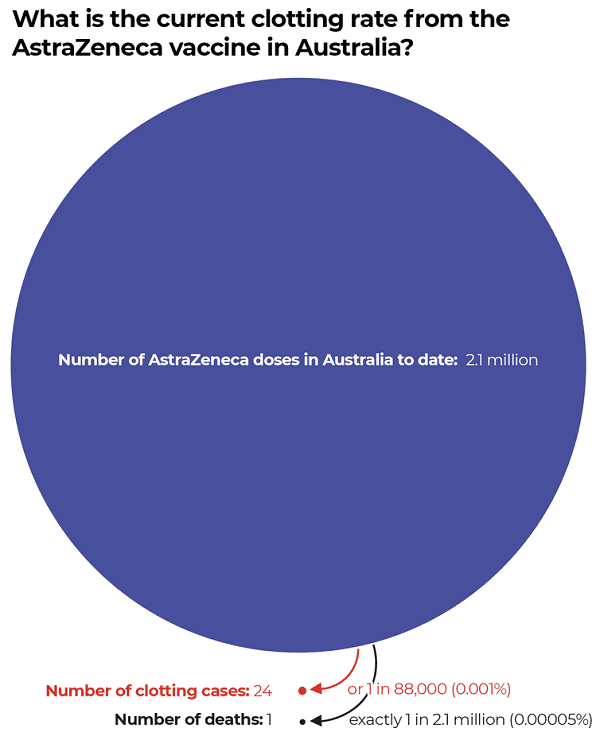The death of a woman in her thirties in Sydney this weekend—after contracting the Delta strain of COVID-19 just 10 days previously—is a tragic reminder that this pandemic is far from over and that everyone is at risk from the virus.
38-year-old Adriana Midori Takara had no underlying health conditions. She was described as just a normal person, with a lot of friends, who worked hard. On Facebook, one friend made the point that “Adriana is not a number”.
In her press conference on Sunday, July 25, NSW Premier Gladys Berejiklian warned that young people too can become victims of COVID.
“If anybody thinks this is a disease just affecting older people, please think again,” she said.
Experts have warned that the Delta variant changes the game for younger people and that this is not something we can be complacent about.
“The message is that young people are at considerable risk and at higher risk than with the earlier variants of COVID,” said Nobel-prize winning immunologist Peter Doherty.
“Young people shouldn’t think they’re at no risk or even minimal risks.”
If you’re in NSW, the government has announced that, from Monday, July 27, anyone above the age of 18 in the state can now get an AstraZeneca shot without the need for a GP consultation.
NSW’s Chief Health Officer, Dr Kerry Chant, said that NSW Health walk-in vaccination hubs like the one at Olympic Park will start offering consult-free AstraZeneca shots. A number of pharmacies in south western Sydney are also administering the jabs, including Bankstown, Bass Hill, Casula, Fairfield, Liverpool, and a “vast array of suburbs”.
So what are we waiting for, NSW? Let’s get to it.
The risks have changed
Risk is the biggest consideration when health officials have been considering vaccine advice. The Australian Technical Advisory Group on Immunisation (ATAGI) have recently updated their advice in response to the NSW COVID outbreak, saying that all adults should “strongly consider” whatever vaccine is available to them.
“This is on the basis of the increasing risk of COVID-19 and ongoing constraints of Comirnaty (Pfizer) supplies,” they said in a statement.
When The Latch spoke with the Deputy Chair of the Royal Australian College of General Practitioners Queensland, Dr Cathryn Hester, she noted that risk assessment of vaccination versus COVID is a rapidly changing conversation.
She said that when Australia experiences outbreaks and lockdowns, the rates of people getting a vaccination go up.
“Their risk assessment of their current situation has escalated, which to be honest I think is actually an appropriate response,” she said.
We know that the risk of blood clots from an AstraZeneca vaccine is incredibly low. We also know that the vaccine can cause this rare side effect and that anyone getting the vaccine will be monitored and receive rapid treatment. This means not only is the risk minuscule, but it’s also further mitigated by our updated understanding of the vaccine.
The UK, now fast approaching 90% first-dose vaccination of its adult population, has almost exclusively used the AstraZeneca vaccine. This is because, while there are some risks, the risks of getting COVID in the UK have historically been much higher.
While our own risk of getting COVID has been a lot lower—and remains relatively low—the balance of risk on those scales has shifted somewhat to where it’s now a smarter idea on the basis of probability to get the vaccine.
The benefits of AstraZeneca
According to ATAGI, even a single dose of either vaccine provides “substantial protection” against hospitalisation from COVID while also reducing transmission by “around half.”
If you have a single dose of the vaccine, you have a 70% lower chance of being hospitalised from COVID. If you have two doses, you have a 95% chance of not even experiencing symptoms from the disease with Pfizer and an 81% chance with AstraZeneca.
That means that not only are you protecting yourself, you’re also protecting your friends, family, and your community.
ATAGI have also noted that the severity of the Delta strain makes the need for getting vaccinated even higher. Delta is a more transmissible and a more dangerous strain than the original SARS-COV-2 virus and the Alpha or UK strain that overwhelmed much of Europe.
The recommended time between doses has also changed. ATAGI now recommend an interval of 4-8 weeks between doses, down from the regular 12 that they had previously advised. This is so more people can achieve maximum immunity more quickly.
What are the risks?
The first thing you need to do when considering a vaccine is to speak to your GP. They will be able to advise on your individual risk profile based on previous or ongoing health conditions.
They will then be able to let you know when and where you can get a vaccine at your earliest convenience. More community pharmacies and mass vaccination hubs are opening up and ready to vaccinate each week and even if you’ve already tried to get a vaccine and nothing was available, it’s worth checking back regularly to see if that has changed.
ATAGI want people to be aware of the risks of AstraZeneca. An information release from the government’s immunisation advice group states that there is a link between the AstraZeneca COVID-19 vaccine and a rare condition called thrombosis with thrombocytopenia syndrome (TTS).
It’s a condition that appears to be more common in younger adults, hence why they were initially reluctant to include younger people in the AstraZeneca rollout.
The condition causes ‘thrombosis’ or blood clotting and ‘thrombocytopenia’ which is low blood platelet counts. It is different from general clotting disorders such as deep vein thrombosis or pulmonary embolism. TTS can occur in different parts of the body, including the brain and in the abdomen.
The condition occurs around 4 to 42 days after vaccination with COVID-19 Vaccine AstraZeneca yet ATAGI say it’s rare and affects 1-2 people per 100,000, although this is thought to be higher for people under the age of 60.
In May, we had given out 2.1 million doses of the AstraZeneca vaccine and only 24 cases of TTS had been reported. Only one of those 24 TTS cases were fatal.

ATAGI definitively say that the benefits of AstraZeneca outweigh the risks. If you’ve yet to get a vaccine, speak with your GP and think about the benefits that getting vaccinated would bring you and those around you.
Australians aren’t usually people to shy away from risks. We live in a country with 21 of the world’s 25 most deadly snakes and hardly ever think about it. We get in the water as frequently as we can even though we know there is a chance of being eaten or stung by something lethal. It’s all part and parcel of the Aussie experience and so too should getting vaccinated.
Read more stories from The Latch and subscribe to our email newsletter.







